
Digital Care: Performing the (Feminist) Internet
The fifth event in the Digital Care series put pioneering female internet artists Debra Solomon and Annie Abrahams in dialogue with their successors.
We're pleased to announce the latest in our ongoing series of events for our project Digital Care, which presents collaborative care for digital artworks. For this evening of screenings, readings and performances, we explore early woman pioneers in internet art and their successors today. The evening centres around a dialogue between early net art and contemporary practices, with Annie Abrahams, Debra Solomon, Janilda Bartolomeu and Joana Chicau.
By the 1990s, female artists were already exploring these and other questions, while the internet was still in its infancy. For their first steps into this vast new communication network, they led artistic interventions and performances, made websites and created alter-egos (avatars). Annie Abrahams worked on a rhizomatic web project exploring online communication beginning in 1997. That same year, Debra Solomon brought to life the character the_living, who seemed to be streaming video from impossible locations. As an infrastructure activist, she broke into existing chat channels, anticipating our 24/7 online lives today – and so anticipating many of the most pressing questions in our current age of ubiquitous social media.
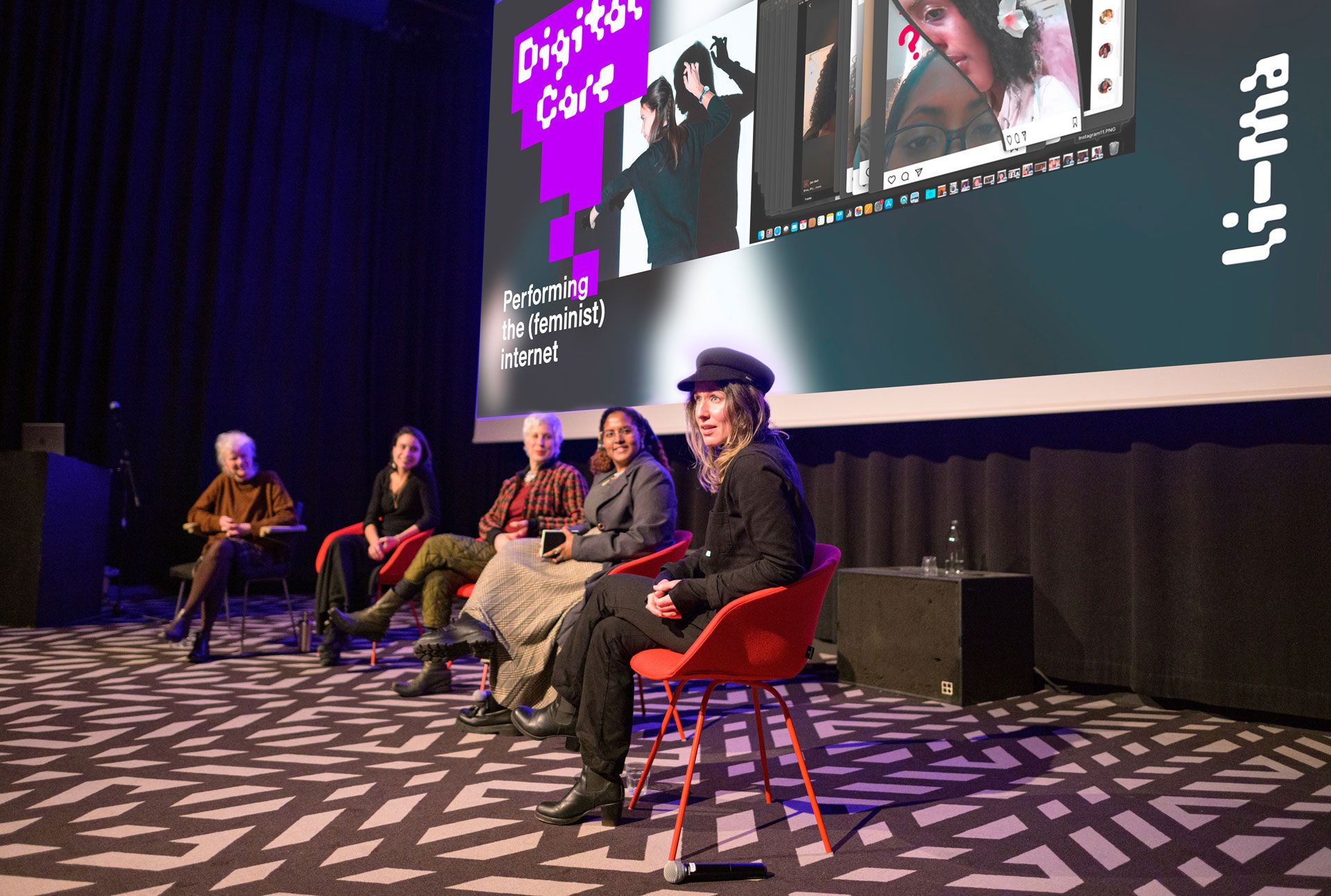
During this evening, we place the works of the past in dialogue with artists and practices of today. Two contemporary artists will present their own relationships with the internet and its digital building blocks: code. Joana Chicau situates herself as an artist not behind but rather in front of code, which she will dance with in a live performance. Janilda Bartolomeu will examine if and how there is also space for the dead on the vibrant internet.
Together with Debra Solomon, Annie Abrahams, Joana Chicau and Janilda Bartolomeu, we will explore the technological landscape of the past, and the questions raised back then. We also look ahead to explore how those works are experienced several decades later, and how artists of today keep on working in this lineage. How do we communicate, dance, live and die online?
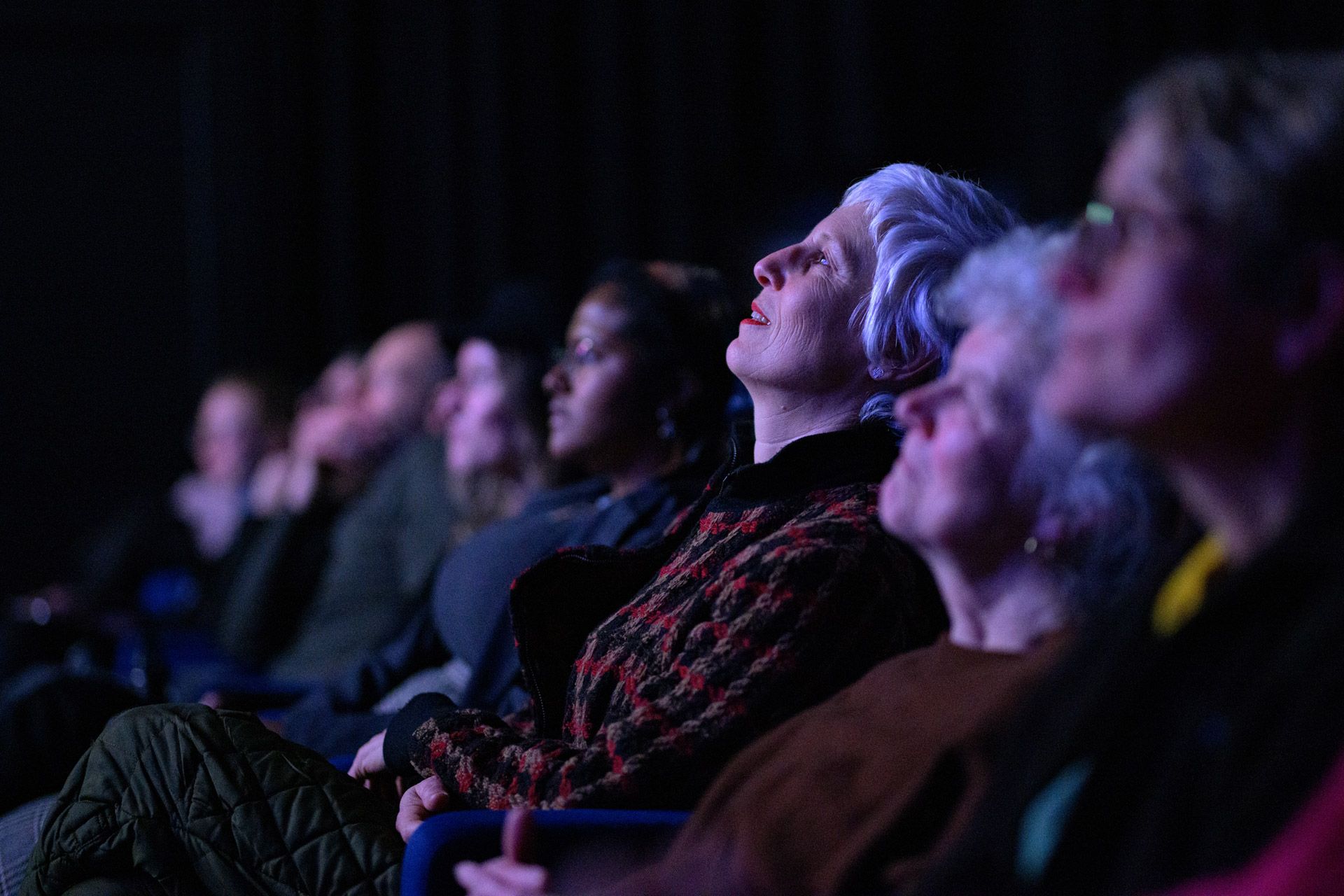
Programme details
Janilda Bartolomeu will screen her work _when_scrolling_becomes_scrying (2023, 12'30"), a response to Debra Solomon’s the_living (1997-1998). The grief of her father’s sudden death motivates Bartolomeu to reflect, as only grief can, on her own online existence. the_living comes from a time when users of the www were full of the possibility of entering other worlds and being whoever they wanted to be. For Bartolomeu, today’s internet is populated by ghosts, the digital traces of past presence. Using found footage, retrieved messages from her father, photos on forgotten platforms and data traces of her own online existence, Bartolomeu edited a film about her digital identity and what might remain of it after death. A black screen, everything turned off. Who would this be? What does she leave behind? What if the internet is populated by the dead?
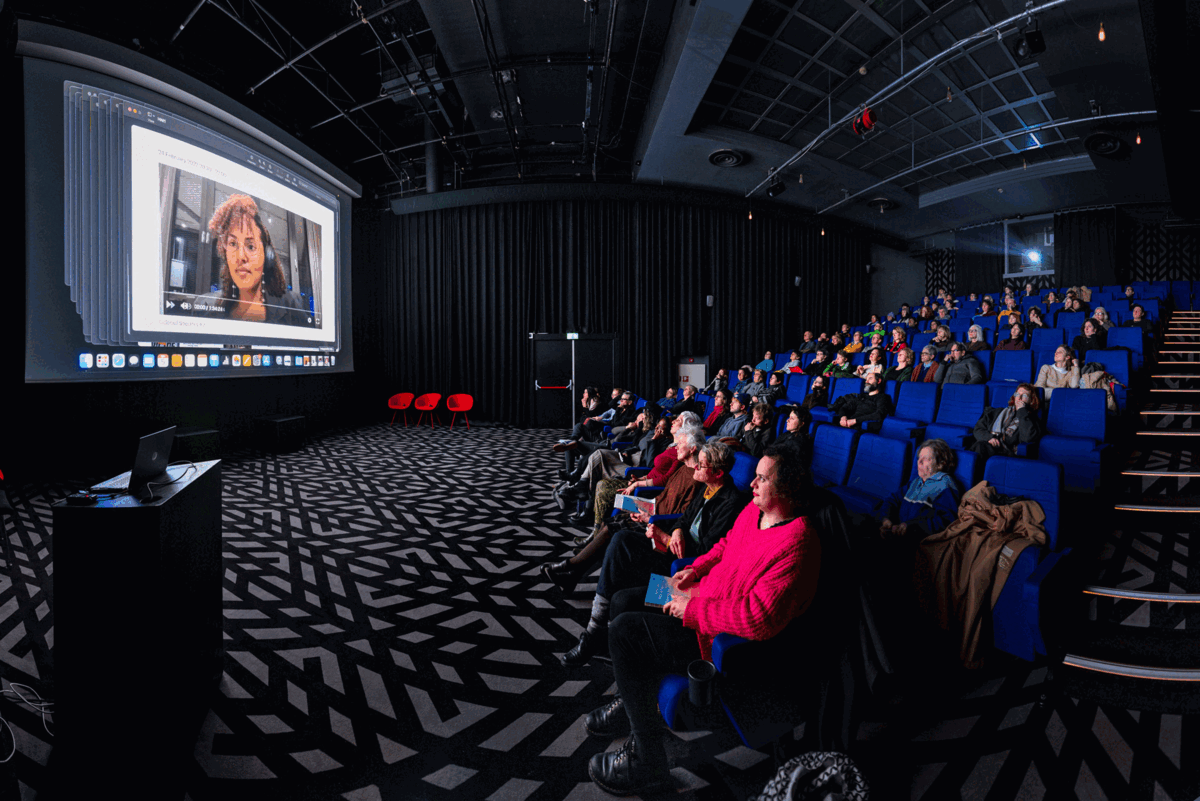
Annie Abrahams will read extracts from the book version of her 1997-2007 website Being Human: Being Human. an anthology. Being Human, the website, was a labyrinthine internet artwork containing small interconnected artworks full of questions, statements and advice about human feelings such as loneliness, fear, pain and belonging. Visitors navigate through the web pages, selecting words, adding information or changing elements. Abrahams created the book version for the exhibition REBOOT. Pioneering Digital Art. In it, she answers the question: "Can the essence of a website called Being Human created between 1997 and 2007, be translated into a book in 2023?" with a poetic "YES"
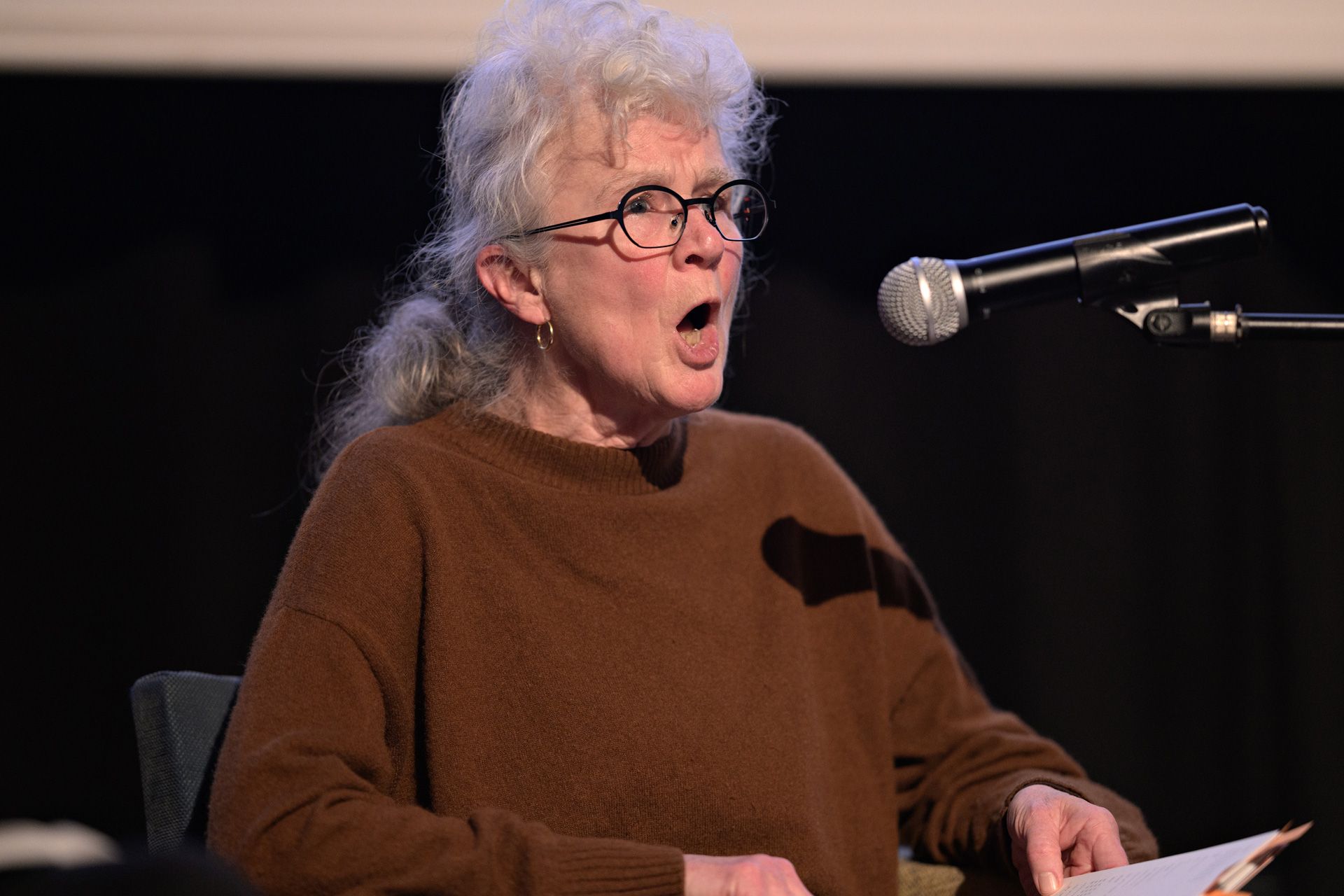
Joana Chicau will perform Tango for Us Two/ Too: a live coding performance that explores the tensions and rhythms of languages within web environments. The performance script focuses on the dialogical nature of Tango. Custom JavaScript functions feed Google Translate with fragments of texts from interviews with dancers and practitioners. The performance unfolds in a pas-de-deux performed by the bodies of code and of the dancer, culminating in a series of (mis)translations. The result is an algorithmic dance that interweaves techniques and poetics of Tango, each breath, a step towards the emergence of a new vocabulary for moving.
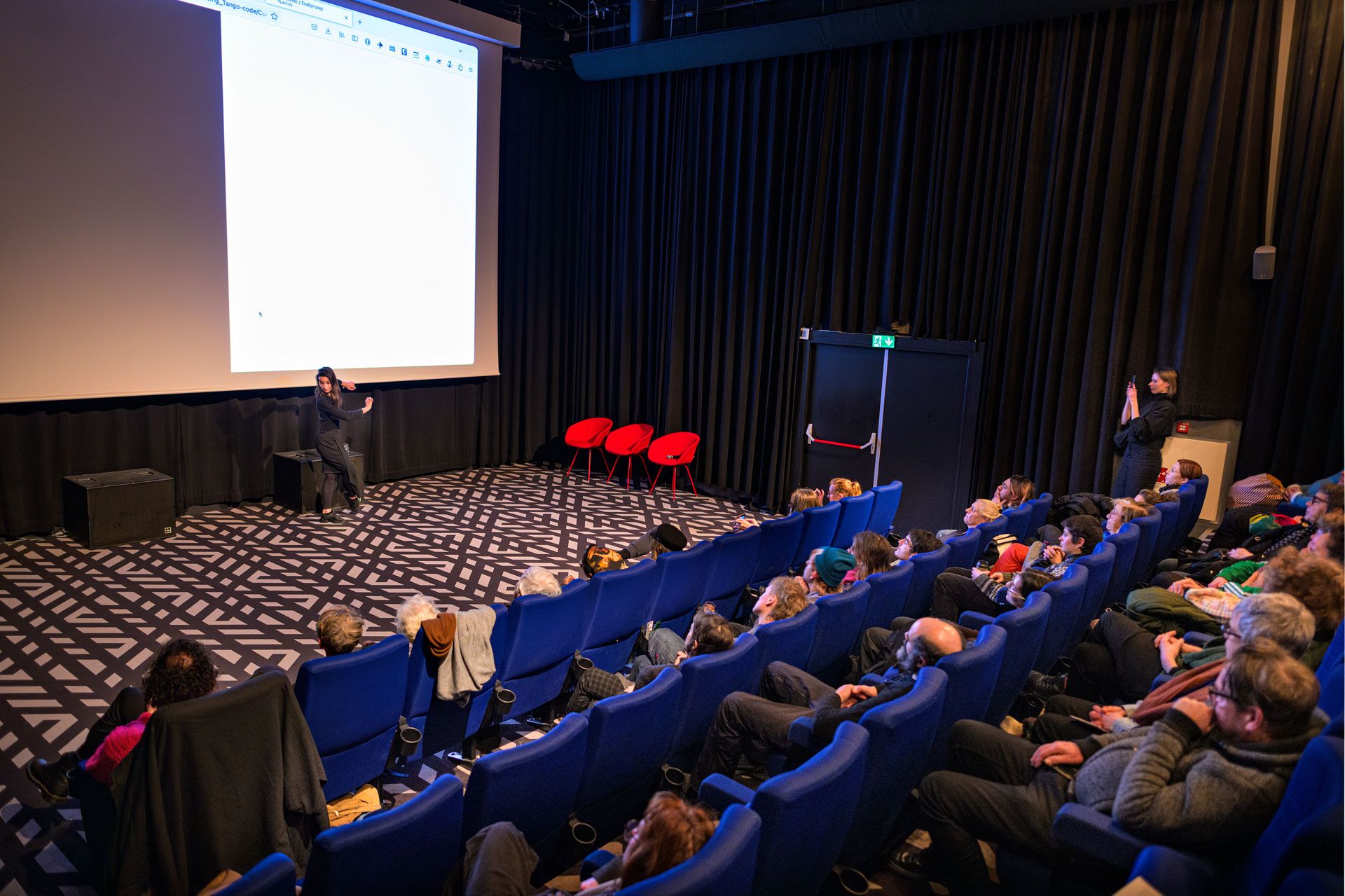
Debra Solomon will intervene throughout the event with variations on the_living (1997-1998). the_living was the digital persona of Solomon, who connected with audiences via streaming video from the most unlikely places. the_living performed from an ice cave, from the bottom of a swimming pool, or from a boat on an Amsterdam canal. She always carried a laptop with CU-SeeMe, one of the first pieces of software to enable live video chat. Using semi-fictional videos and stories, the_living infiltrated public chat channels. In this way, the audience became part of a collective, hybrid performance with no clear location or boundaries.
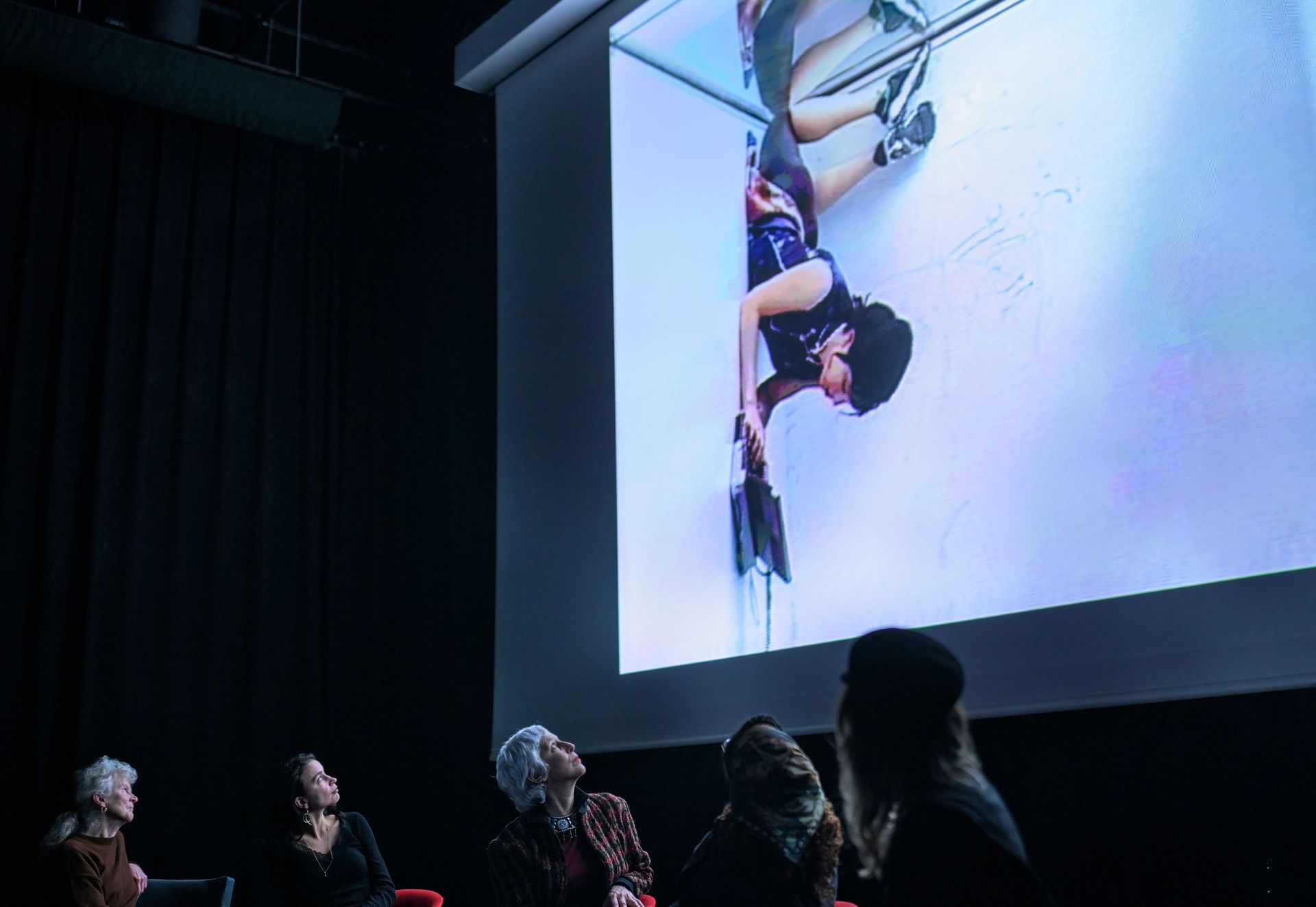
Artists
Janilda Bartolomeu is a film programmer, filmmaker and researcher, based in Rotterdam. She has a Master’s Degree in Comparative Arts & Media Studies. As part of Research & Development at Het Nieuwe Instituut she researched spectrality within a variety of (post)colonial contexts. She was also one of Eye Filmmuseum’s Programmers of the Future (2022-2023). Her fascinations include decolonial cinema, collective memories, hauntings and speculative research methodologies.
Annie Abrahams questions the possibilities and limits of communication in general and, more specifically, investigates its modes under networked conditions. Abrahams is known worldwide for her net art (Being Human – online low tech mood mutators / not immersive. 1996 – 2007), collective writing experiments and is an internationally regarded pioneer of networked performance art. In her carefully scripted art, she tends to reveal ordinary human behavior and develops what she calls an aesthetics of trust and attention.
Joana Chicau is a designer and researcher — with a background in dance. She researches the intersection of the body with the designed and programmed environment, aiming at widening the ways in which digital sciences is presented and made accessible to the public. Her practice and exploration interweaves web programming with choreography — from the making of online platforms to performances and workshops. In parallel she participates and co-organizes events involving collaborative algorithmic improvisation and discussions on digital equity and activism. Chicau is a lecturer pursuing a PhD at the Creative Institute at the University of the Arts London.
Debra Solomon (US/NL), born in Lancaster, California, holds a BA in Music and studied in the Audiovisual department at the Gerrit Rietveld Academy from 1991 to 1995. Solomon's works have been shown at MoMA PS1, New York; Kunsthal, Rotterdam; V2_Organisation, Rotterdam; the Stedelijk Museum, Amsterdam; the Offenes Kultur Haus, Linz. She has lectured at various institutions, including UC Berkeley and the International Astronautics Federation Congress, and currently teaches in the MFA programme of the Dutch Art Institute in Enschede, the Netherlands.
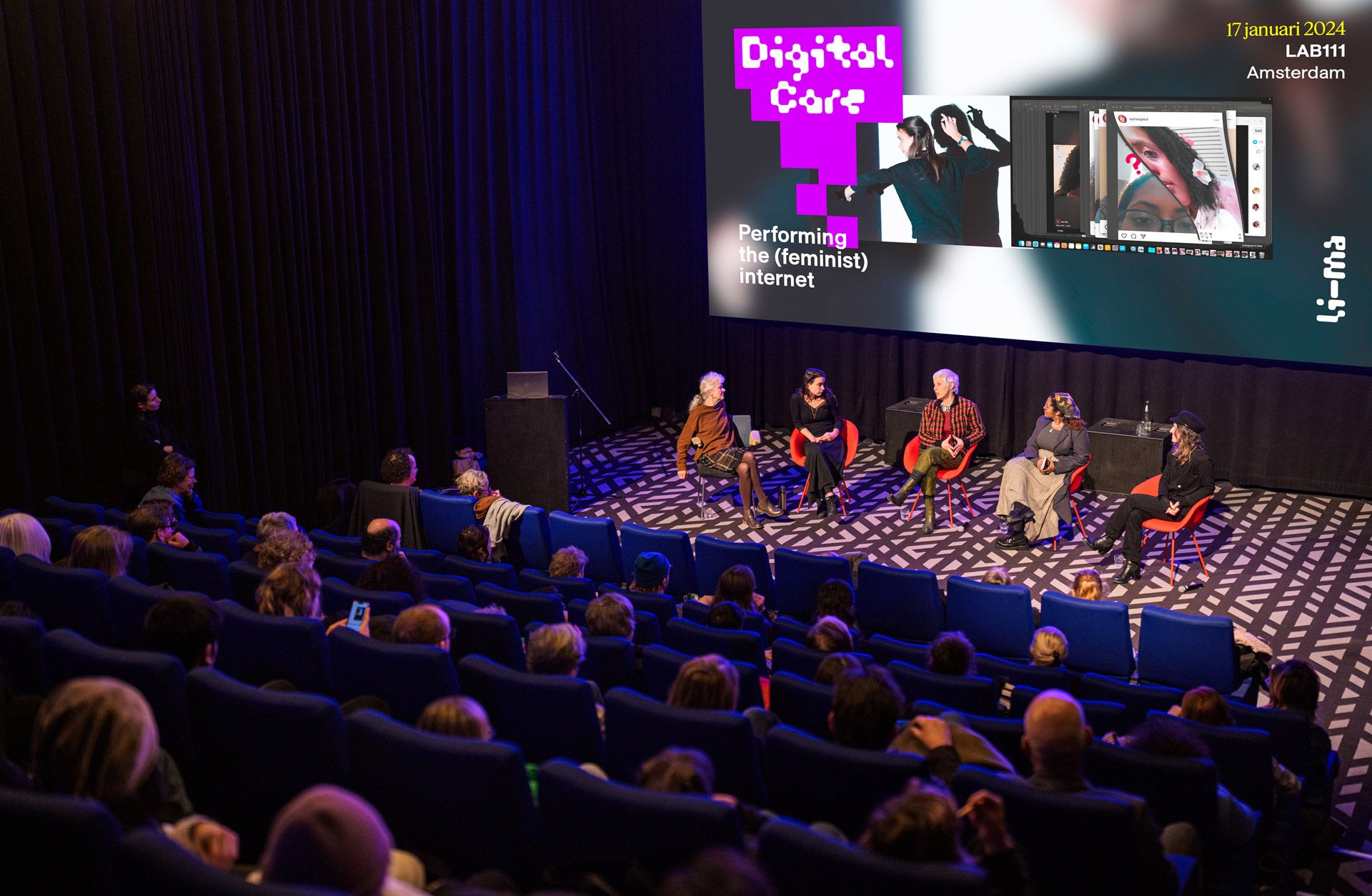
Digital Care
Digital Care presents collaborative care for digital artworks through an open process. From March until October 2023, iconic works, including the_living, 1997-1998, by Debra Solomon, Ideofoon I, 1970-2013, by Dick Raaijmakers and Institute of Artificial Art Amsterdam, 1990-present, by Remko Scha, have been researched and shown in public programmes across the country. Talks with artists, scholars, producers, technicians and the public have explored what it means to present these works today – and preserve them for a future generation.
Nieuwe Instituut and LI-MA present the exhibition REBOOT: Pioneering Digital Art. Featuring key works from the Netherlands from 1960 to 2000, plus new work by contemporary makers, REBOOT reveals the influence of digital technology on art and society. The Digital Care trajectory functions as a strong basis for the run-up of this public exhibition which runs from 7 October 2023 to 12 May 2024 at Nieuwe Instituut.
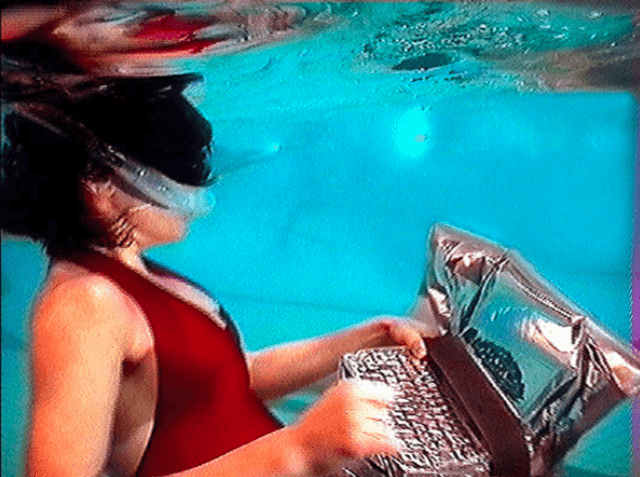
Digital Care and REBOOT are supported by Creative Industries Fund NL, Mondriaan Fund, and Network Archives Design and Digital Culture.
Images of event by Pieter Kers. Final image from Debra Solomon, the_living (1997-1998), showing at REBOOT. Pioneering Digital Art.






